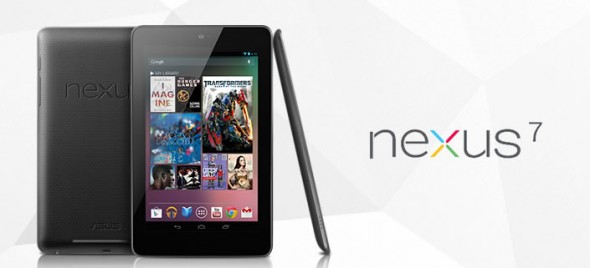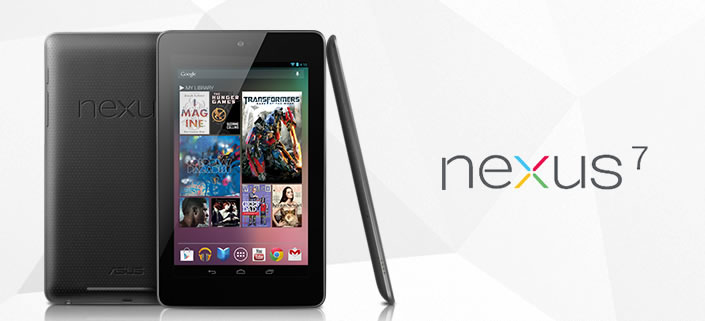
Google has been watching other companies carefully crafting their ecosystems for long enough. The Nexus 7 tablet – released today in the UK – is their declaration of assault on the tablet market. Partnering with Asus – a well-established PC manufacturer – Google have not only slapped some incredible components in to the shell, they’ve packaged it nicely and subsidised it to sell. Picking one up in the UK will cost you a mere £159.
Most analysts reckon the Nexus 7 isn’t aimed at dethroning Apple from its seat of superiority – though some believe it could – but rather an attempt to stamp out any market incursions made by Amazon with the release of its own budget tablet, the Kindle Fire. Google look like they’re going to win this one – Amazon’s efforts have been panned by many reviewers, and the whole Kindle Fire ecosystem seems hamstrung. By comparison, Google’s offering is nicely-encapsulated and well – designed. You can access your documents wirelessly through Google Drive. You can print remotely to a wireless printer using Google Cloud Print. So what on earth can other tablet manufacturers do to compete?
Step 1, I think, is to forget about the lower-end tablet market. It’s widely accepted that tablets are going to be the future for mobile computing, and possibly for computing in general. The Nexus 7 will completely sweep the lower-end market away from any competition. At its low cost and bonus extras – among them a sizeable Google Play voucher – the subsidies are really going to give Google a stranglehold over whatever goes on. Rumours are that Apple is looking to take on that market with an ‘iPad mini’ priced to sell in competition with the Nexus 7, but I would take those with a pinch of salt. ‘Low-end’ has never been Apple’s market, design-wise or expertise-wise. Besides, the thought of Apple subsidising a device to sell against a competitor seems a bit laughable. Apple likes to define consumer trends, not follow them, and its payoff for doing so is high markup on products. Besides, it has staked a considerable proportion of its public image around being a luxury consumer product. Taking a dive in to this market would be a very unusual move.
The high-end market is Apple’s, too. I recall the announcement of the iPad, before the price was set – the speculation was wild. Most analysts predicted a good thousand dollars for entry-level models. When they released the prices, the conference centre hit the roof. At £329 for the still-current iPad 2, the ‘in-between’ market is pretty slim. Manufacturers wishing to compete in the tablet market have a narrow $200-ish to play with.
What should they offer to plug that gap? They should use Windows 8, for one. Licensing isn’t fun for any hardware manufacturer, but the major tablet Operating Systems are just light years ahead of anything they could come up with in the short space of time they have. Making the move away from Android might well focus Google on the lower-end of the tablet market, and keep it there. iOS is out-of-bounds. That leaves Windows 8 – which, judging from the recently-released Consumer Preview, is going to be great. Even the Windows Phone OS isn’t bad. Windows 8 sounds fun.
What else should they strive for? Unique markets. I’m talking serious niches here – because the only way that they will survive is through diversification. There’s a market for waterproof tablets that Google and Apple can’t fix. Shock-proof tablets. Looking at those niche markets now has to take priority over venturing forth with products that implement mediocre versions of emergent technologies (like 3D displays or fingerless navigation) aimed at capturing a wider audience.
The ‘wider audience’ is gone – and all that’s left to play with are those that don’t fit either category.

